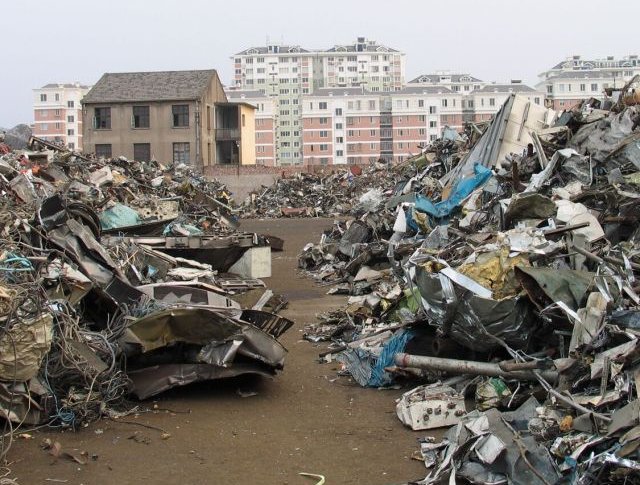UN-led alliance aims to scrap unnecessary e-waste
Three UN agencies, governments and leading industry players have joined together to draw up global standards to reduce electronic waste and maximise valuable resources.


Sign up today and you will receive a free copy of our Future Focus 2025 report - the leading guidance on AI, cybersecurity and other IT challenges as per 700+ senior executives
You are now subscribed
Your newsletter sign-up was successful
Today marks the official launch of a new, global initiative, led by the United Nations (UN) and backed by leading industry players, designed to tackle the environmental impact of refuse created by computers, phones, radios and TVs.
The public/private initiative, called Solving the E-Waste Problem (StEP) aims to develop standard recycling processes, extend product lifecycles, promote re-use wherever possible and more intelligently deal with electronic scrap (e-scrap).
It has the backing of three UN agencies, governments, academia and major high-tech names such as Cisco, Dell, Ericsson, HP, Microsoft and Philips.
The amount of e-scrap generated on a yearly basis would fill enough dump trucks to line up halfway around the world, according to the initiative's supporters.
"There's more than gold in those mountains of high-tech scrap," says Ruediger Kuehr of the UN University, which will host the StEP Secretariat in Bonn. "This partnership is committed to salvaging these increasingly precious resources and preventing them from fouling the environment."
The ultimate aim is for companies to emboss their products with an easily identifiable StEP logo that proves the manufacturer has conformed to the standards and guidelines set by the alliance.
"There is a clear need and opportunity now to address the resources, health and environmental concerns being created by a surging increase in electronic waste," said UN Under Secretary-General and UNU Rector Hans van Ginkel.
Sign up today and you will receive a free copy of our Future Focus 2025 report - the leading guidance on AI, cybersecurity and other IT challenges as per 700+ senior executives
Maggie has been a journalist since 1999, starting her career as an editorial assistant on then-weekly magazine Computing, before working her way up to senior reporter level. In 2006, just weeks before ITPro was launched, Maggie joined Dennis Publishing as a reporter. Having worked her way up to editor of ITPro, she was appointed group editor of CloudPro and ITPro in April 2012. She became the editorial director and took responsibility for ChannelPro, in 2016.
Her areas of particular interest, aside from cloud, include management and C-level issues, the business value of technology, green and environmental issues and careers to name but a few.
-
 Anthropic reveals Claude Opus 4.6, its new enterprise-focused model
Anthropic reveals Claude Opus 4.6, its new enterprise-focused modelNews The AI developer highlighted financial and legal tasks, as well as agent tool use, as particular strengths for the new model
-
 AI-generated code is fast becoming the biggest enterprise security risk
AI-generated code is fast becoming the biggest enterprise security riskNews Security teams are scrambling to catch AI-generated flaws that appear correct before disaster strikes
